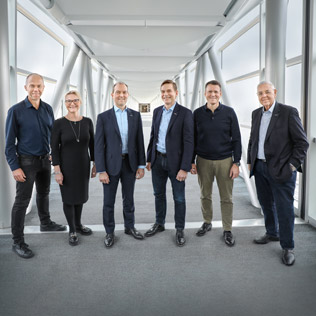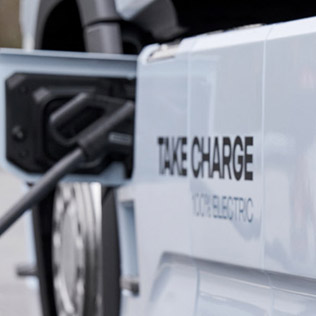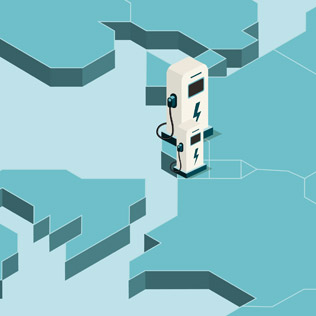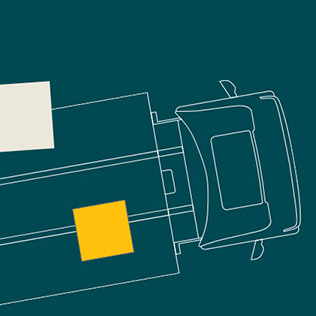Transformation in action
The transition in the transport sector has been underway for some time. We present experts at Scania, MAN, Navistar, and Volkswagen Truck & Bus who are shaping the transformation of the industry, and take a look at the latest developments in the Group.
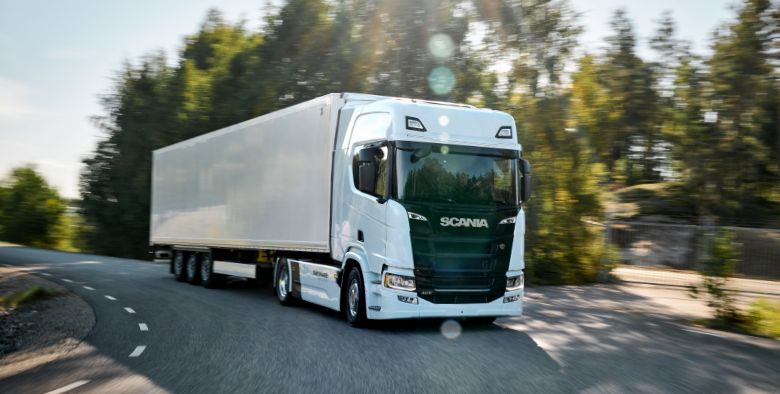 Scania
A common platform for the future
Scania
A common platform for the future


Scania

Scania has offered both all-electric and hybrid vehicles since 2017. Around 2,000 of these types of vehicles were in operation in 2023. The company reached a milestone in 2020 with the introduction of a 29-ton truck containing nine batteries. Now a truck weighing up to 64 tons containing six batteries is market-ready. “I find that remarkable,” says Bo Andrén. “Four years ago, we had nine batteries with an output of 330 kilowatt-hours. Today we have just six batteries, but they have an output of 624 kilowatt-hours,” explains the Engineering Director Battery Development at Scania. “This shows us the progress we have been making in a relatively short space of time, firstly in packing the cells and secondly in how efficient those cells actually are.”
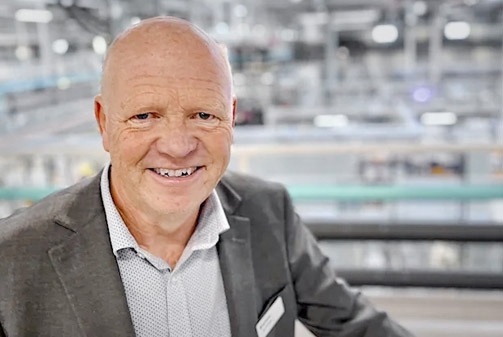
“Four years ago, we had nine batteries with an output of 330 kilowatt-hours. Today we have just six batteries, but they have an output of 624 kilowatt-hours.”
Bo Andrén,Engineering Director Battery Development at Scania
Common battery platform
There was a time where Scania would buy entire batteries from suppliers. Now the only part provided by its cooperation partner Northvolt are the cells. “We do everything else ourselves,” says Andrén. From the modules to the electronics to the software, the final battery comes from Scania. This gives the manufacturer full control over this key component. In the future, the Group’s other brands will also follow this strategy and jointly develop and manufacture batteries across all brands using the TRATON Modular System. Scania and MAN have already laid the foundations for this. “The new electric trucks from both brands are equipped with the same type of battery, even if they are not exactly the same,” explains Andrén. “We have developed two similar systems at Scania and MAN over the last few years. There are common components that are 100% identical, such as the software and battery management.” The next step is a global battery platform that can be used by all of the Group’s brands.
Alternative fuels
In addition to battery electric drives — which are the most important means of transitioning the transport sector to zero-emission vehicles — Scania is also focusing on sustainable biofuels. These can almost immediately reduce the CO2 footprint of fleets that are currently in use. Scania has been developing and selling engines that can run on alternatives to fossil fuels for more than 25 years and today offers the largest range of these kinds of engines on the market. All Scania Euro 5 and Euro 6 engines can operate on HVO (hydrotreated vegetable oil). These are converted vegetable oils that can be used like diesel fuel. In addition, almost all vehicles are suitable for FAME (fatty acid methyl esters), a biodiesel fuel obtained from fats and methanol. These kinds of engines are particularly interesting for applications and markets in which electrification is progressing more slowly.
 MAN
Battery as a key component
MAN
Battery as a key component


MAN
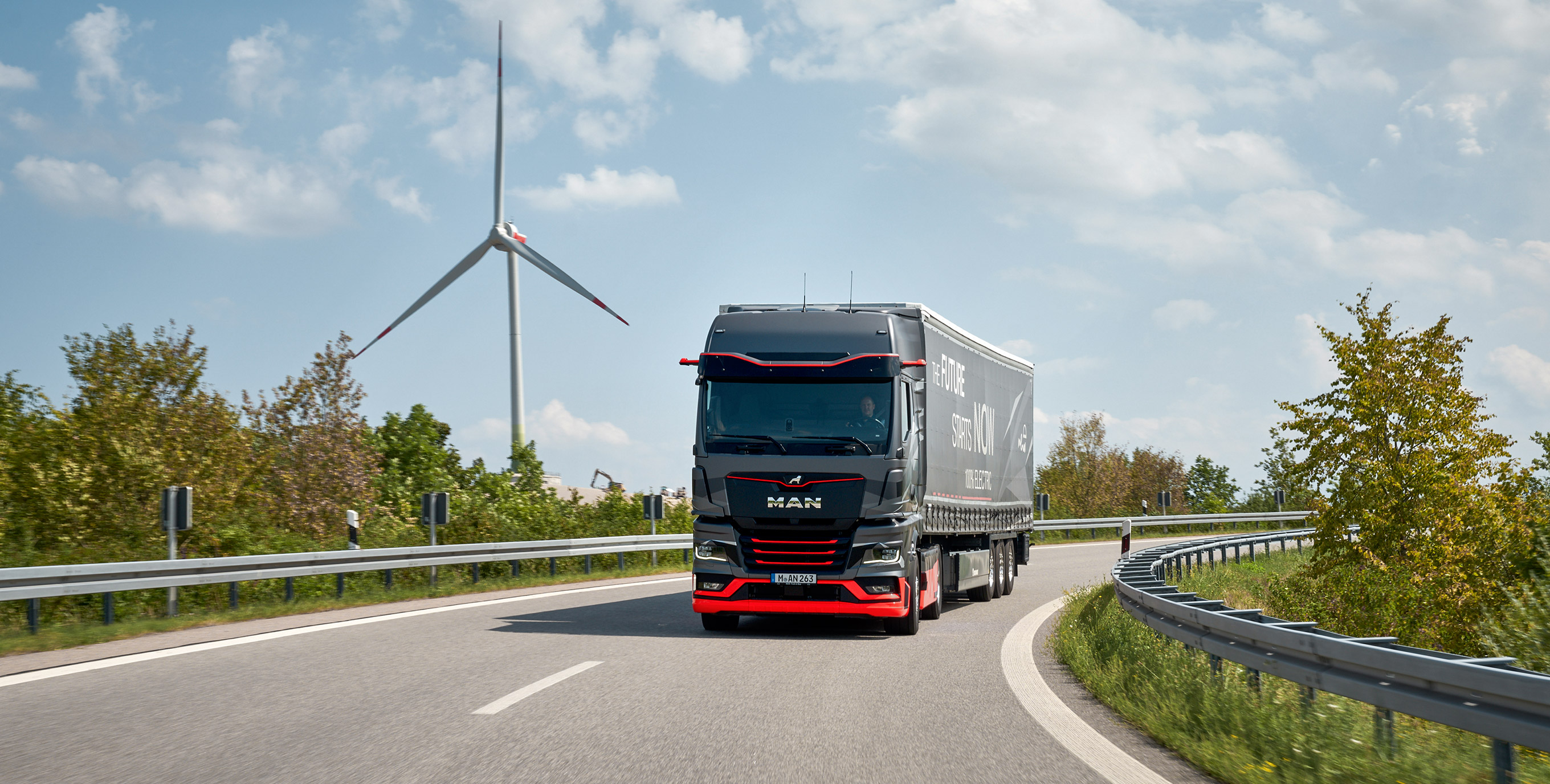
With the eTruck, MAN will deliver the first battery-powered heavy-duty truck in the company’s history to customers in 2024. Since the sales launch in October 2023, there have already been 700 orders and pre-orders. The company initially delivered the first low-volume production of 200 units to selected customers for testing. Production at the MAN plant in Munich will start in larger quantities from 2025. “We have already had low-volume production in distribution transport in the past, but this is the first MAN electric truck to go into series production,” says Ulrich Zimmer. He is responsible for research and development in the field of batteries and charging at MAN and, as Head of Group R&D Battery and Charging, also assumed this responsibility for the TRATON GROUP at the end of 2023. As such, his job is to develop Group solutions and make them ready for series production, which can then be used by the brands.

“Batteries are the main driver of innovation. As a result, we have gradually made the topic our own and learned a lot in the process.”
Ulrich Zimmer,Senior Vice President Production Powertrain at MAN,
Head of Group R&D Battery and Charging at TRATON
New battery production
While the eTruck is still waiting for its production ramp-up, MAN’s electric buses already have something to celebrate: in September 2023, three years after the start of series production, the 1,000th MAN Lion’s City E bus rolled off the production line at the plant in Starachowice, Poland. The anniversary bus will be used in the greater Madrid area.
By 2025, half of all new MAN city buses will be electric; just five years later, this figure is expected to rise to up to 90%.
The company is also focusing on the electrification of intercity buses and coaches. All future developments will have a strong focus on batteries. Zimmer is sure that this is the main driver of innovation: “We quickly realized that we had to develop and produce batteries ourselves. We then gradually made the topic our own and learned a lot in the process.” The preliminary highlight of this development was the groundbreaking ceremony for the new battery production facility at MAN’s Nuremberg site. From 2025, up to 100,000 high-voltage batteries will be mass-produced there every year for the eTruck, as well as for city buses and, at some point, coaches.

Autonomous trucks
2024
MAN will test an autonomous prototype vehicle on the road at the end of 2024.
Another important forward-looking field for the transportation industry is autonomous driving. MAN won the prestigious Truck Innovation Award in 2023 with two research and development projects. As part of the Anita project, MAN and its partners demonstrated that autonomous trucks can be up to 40% more productive when transferring goods from road to rail. And the ATLAS-L4 project showed that driverless vehicles operating between logistics hubs reduce fatigue accidents and optimize transport processes. MAN will test an autonomous prototype vehicle on the road at the end of 2024.
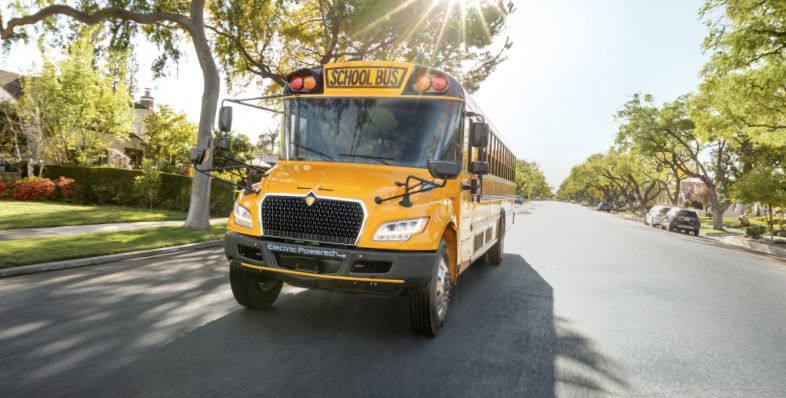 Navistar
Helping customers prepare for tomorrow
Navistar
Helping customers prepare for tomorrow


Navistar

Jason Kazmar has been at Navistar since September 2023. As Director of Mobility Solutions, it’s his job to support the company’s transition to battery electric vehicles. “I am responsible for charging infrastructure strategy,” he says. “Customers expect streamlined solutions, and as charging technologies and business models evolve, we need to stay ahead to ensure our customers are realizing the continued benefits of these advances.” Navistar works with leading infrastructure and electric vehicle supply equipment partners when developing these kinds of solutions.
Since 2023, the company has been working closely with Quanta Services, a leading provider of energy infrastructure in the USA and Canada. “Through Navistar’s On-Command-Connect (OCC) platform, we are identifying the best use cases and customers for the transition to battery electric vehicles based on operation requirements including routes, distances, and dwell times,” Kazmar explains. “This allows us to create actionable use case models for these vehicles.” These models vary in complexity, from return-to-base operations where the vehicle only travels one route per day and can charge overnight at the same location to operations where the vehicle’s daily start and end points are different and require multiple charging locations. “The operation of an electric fleet is like a concert in which a conductor leads a harmonious interaction between the vehicles and charging,” says Kazmar.

“We believe that battery electric vehicles will eventually present many compelling use cases. Customer education and engagement is essential at this early stage to ensure that they remain competitive and in a position to take advantage of innovation and new technology.”
Jason Kazmar,Director of Mobility Solutions at Navistar
Battery electric lineup
Navistar launched two electric models in 2021, the International eMV Series medium-duty electric truck and the eCE Series electric school bus. The eMV is available in various body types to meet different use cases, including a refrigerated vehicle in which the cooling energy comes exclusively from the truck’s traction battery. The eCE school bus is an electric variant of the market-leading IC Bus platform. In 2023, Navistar presented the next generation of its IC Bus platform, which will also be available as a battery electric vehicle. “In many cases, school bus operations are a good fit for electrification,” explains Kazmar. “These buses travel fixed routes and can be charged overnight at the same location.”

Taking action early
In many cases, customers cited that electrical infrastructure will require capacity upgrades to support electric trucks. These upgrades can require extensive lead times, and Kazmar believes it is important to talk to Navistar’s customers today about future electric vehicles and the infrastructure required for charging. “The transition is underway, and we believe that battery electric vehicles will eventually present many compelling use cases,” he explains. “Customer education and engagement is essential at this early stage to ensure that they remain competitive and in a position to take advantage of innovation and new technology.”
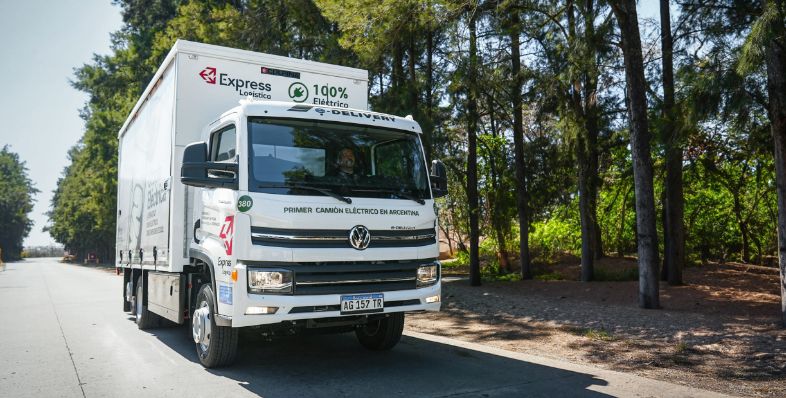 Volkswagen Truck & Bus
Smart partnerships for success
Volkswagen Truck & Bus
Smart partnerships for success


Volkswagen Truck & Bus
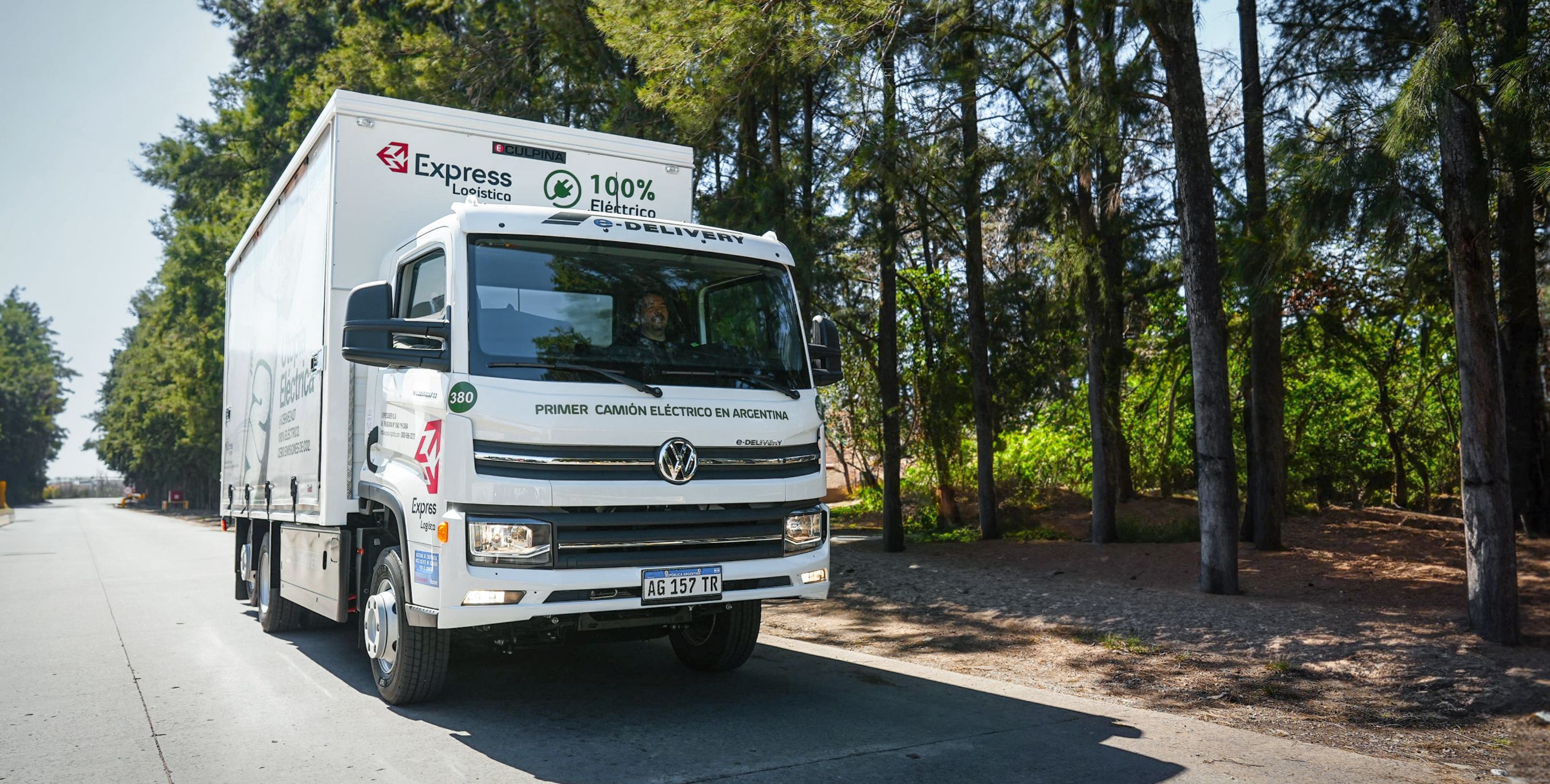
The e-Delivery from Volkswagen Truck & Bus (VWTB) is South America’s first electric distribution truck. In order to lower its project investments, adopt a very competitive technology, and shorten the e-Delivery’s time to market, VWTB has been working with a select group of partners and suppliers, cooperating closely in the areas of product development, production, and customer service. “Thanks to a collaborative way of working and because we strive to create customer value and leverage smart partnerships to achieve the best results, we have been able to develop a portfolio that has made us the market leader for 20 years,” explains Rodrigo Chaves, Chief Technology Officer of VWTB.
Chaves adds that electric vehicles that operate in the South American region face different challenges than those in the TRATON GROUP’s other markets, for example altitude capability and overloading practices. “In 2023, we expanded the e-Delivery offer to other key Latin American markets. Our product line is capable of reliably operating at altitudes of up to 3,800 meters. This means that customers in the Andean countries now also have an option for zero-emission delivery transport,” he explains.

“Thanks to a collaborative way of working and because we strive to create customer value and leverage smart partnerships to achieve the best results, we have been able to develop a portfolio that has made us the market leader for 20 years.”
Rodrigo Chaves,Chief Technology Officer at Volkswagen Truck & Bus
Zero-emission delivery
Since 2023, VWTB has also offered the e-Delivery in Uruguay, Argentina, Mexico, Paraguay, Chile, and Guatemala. Last year, it was delivered to the Argentinian drink manufacturer Quilmes, which aims to become CO2-neutral by 2040 and needs to reorganize its delivery fleet to achieve this. Running with several different types of applications since 2021, the e-Delivery offers the possibility to install more than 20 different cargo bodies, showing its flexibility to help customers meet their CO2 emission reduction targets in any application. “We can offer our customers not only the right vehicles, but also comprehensive services, such as charging infrastructure and lifecycle management, using renewable energy,” says Chaves. He adds that these kinds of partnerships hold the key to drive forward the transition to zero-emission mobility.

First electric bus
Chaves sees great potential for additional battery electric products from VWTB. The company is currently testing the e-Volksbus, the prototype of an electric bus. Its development once again utilized the tried-and-tested concept of smart partnerships and the TRATON modularization philosophy to allow VWTB to expand its zero-emission product portfolio quickly and efficiently. Looking ahead, Chaves is optimistic about the possibilities the new TRATON Modular System offers. He expects enormous advantages in the development of new vehicles, especially with regard to batteries, propulsion, and control systems, to achieve even better operational results and improve customer efficiency and profitability. He adds, however, that South America is a market in which electrification will take longer than in Europe. As a transitional or niche solution, “Biofuels are an alternative to drive forward the transformation toward lower emissions. We are working closely with our colleagues from TRATON R&D in this area,” says Chaves.
